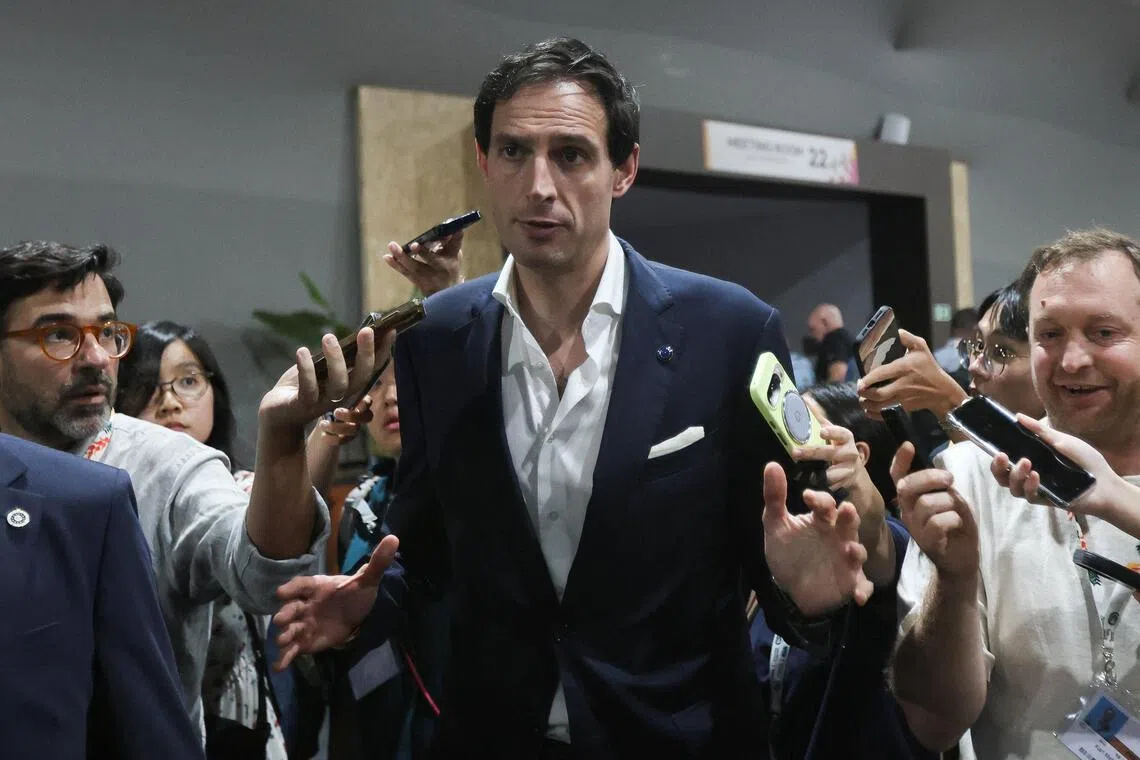COP30 Climate Summit Deadlocked: Nations Clash Over Fossil Fuel Phaseout, Finance & Carbon Tax in Brazil
 Brazil
Climate Change
Brazil
Climate Change

COP30 climate talks in Belem, Brazil, face deadlock as oil-producing nations resist a fossil fuel phaseout. Disputes also arise over climate finance and the EU'
COP30 Climate Summit Teeters on Brink Amid Fossil Fuel Deadlock
The United Nations' 30th Conference of the Parties (COP30), held in Belem, Brazil, finds itself on the verge of collapse. After nearly two weeks of intense global negotiations, a unified agreement to confront climate change appears increasingly out of reach. The primary stumbling block: fierce resistance from key oil-producing nations against a definitive phaseout of fossil fuels.
Fossil Fuel Omission Sparks Outrage
A newly unveiled draft agreement surprisingly omitted any mention of "fossil fuels" or a "roadmap" for their transition. These were terms that Brazilian President Luiz Inacio Lula da Silva, the summit's host, had previously supported publicly. This significant omission immediately drew sharp criticism from numerous delegations.
European Commissioner for Climate, Net Zero and Clean Growth, Wopke Hoekstra, voiced profound disappointment, labeling the text "unacceptable." He warned that the summit risked concluding without any meaningful consensus. "I am saying it with a heavy heart, but what is now on the table is clearly no deal," Hoekstra stated, as negotiators huddled in a last-ditch effort to find common ground.
Key Players Block Progress
More than 30 countries—a diverse group including wealthy nations, emerging economies, and vulnerable small island states—had collectively insisted on a binding plan to transition away from fossil fuels. However, influential players such as Russia and Saudi Arabia, alongside major coal consumer India and several other emerging countries, are reportedly impeding progress on this critical issue.
German Environment Minister Carsten Schneider emphatically declared that the latest draft "cannot remain as it is," anticipating difficult final hours of negotiation before COP30 officially ends. Colombia’s Environment Minister Irene Velez Torres also stressed that COP30 "cannot end" without a clear fossil fuel roadmap.
Financial Aid and Carbon Taxes: Further Divisions
Beyond the contentious debate over fossil fuels, deep divisions persist concerning financial mechanisms. Developing nations are advocating for significantly increased financial support to help them adapt to the escalating impacts of climate change, such as floods and droughts, and to fund their shift towards low-carbon economies.
The rejected draft had proposed a "manyfold increase" in financial aid and called for "efforts to triple adaptation finance" by 2030 compared to 2025 levels. However, the European Union, while signaling its willingness for ambitious adaptation efforts, tied any new financial commitments squarely to the US$300 billion annual climate finance goal agreed upon at COP29 in Baku last year.
Adding another layer of complexity, the EU’s proposed "carbon tax" on imports—affecting goods like steel, aluminum, cement, and fertilizers—is facing strong opposition, particularly from China and India. Britain and Canada are also preparing to adopt similar measures, intensifying trade-related friction within the climate discussions.
Venue Fire Adds to Tensions
An unexpected incident further disrupted the proceedings: a fire broke out at the COP30 venue on November 20. This prompted a panicked evacuation and delayed negotiations for several hours. While nineteen people received treatment for smoke inhalation and two for anxiety attacks, the venue thankfully reopened later that night.
A Broader Struggle for Global Consensus
The current deadlock at COP30 mirrors a wider global struggle to build upon and implement the "transition away" from fossil fuels commitment made at COP28 in Dubai in 2023. With consensus required from nearly 200 nations, and the notable absence of the United States under President Donald Trump further underscoring geopolitical complexities, the path to a robust and effective climate agreement remains fraught with challenges.
As Andre Correa do Lago, the Brazilian diplomat heading COP30, somberly noted, those who doubt that cooperation is the best way forward for climate change "are going to be absolutely delighted to see that we cannot reach an agreement between us."